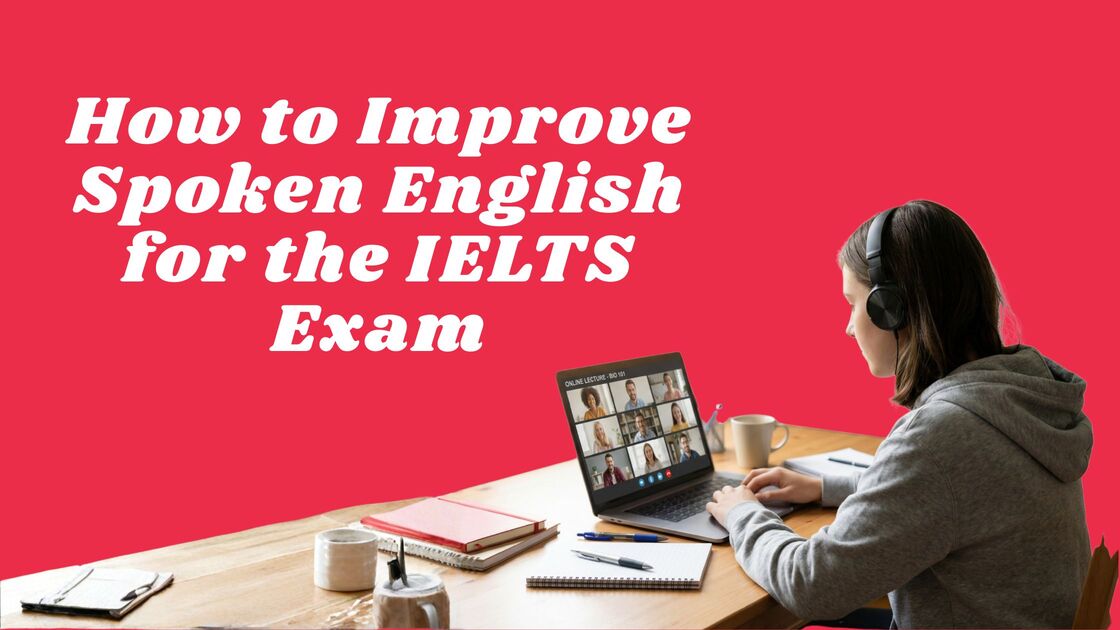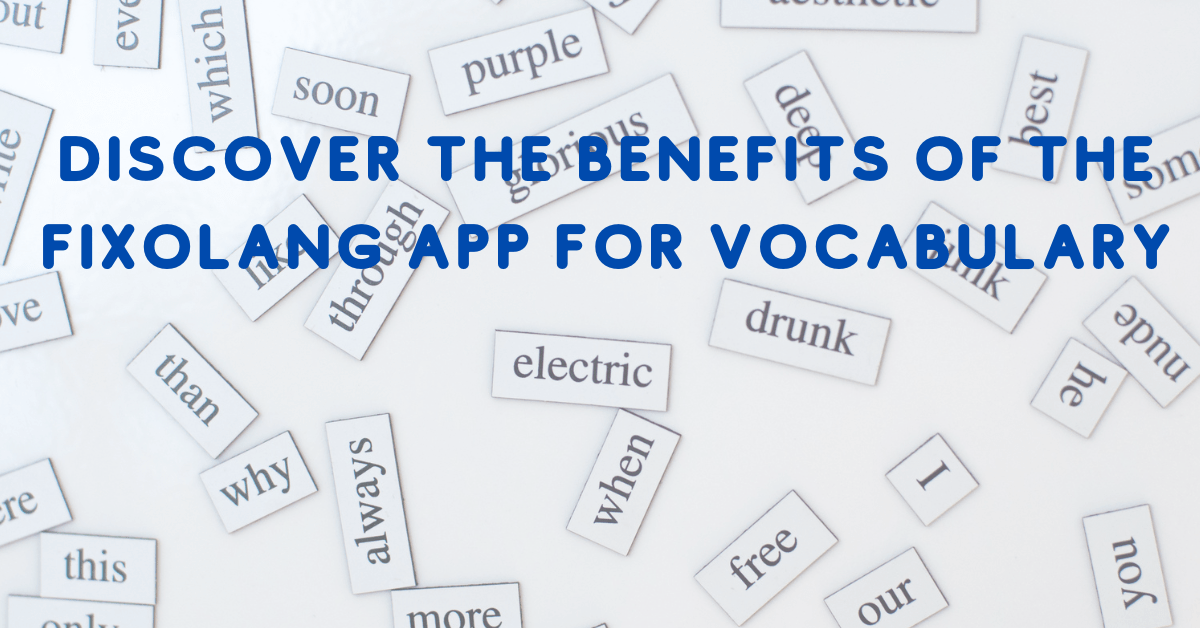Improving spoken English for the IELTS exam is one of the most challenging yet most rewarding parts of IELTS preparation. Many candidates score well in reading and listening but struggle to achieve their desired band in the IELTS speaking test. The reason is simple: spoken English requires confidence, clarity, real-time thinking, and consistent practice—skills that cannot be developed through theory alone.
This blog is designed as a practical, authoritative guide for learners who want to improve spoken English specifically for the IELTS exam. It combines proven language-learning strategies, exam-focused techniques, and modern digital tools like the Fixolang app, helping candidates move from hesitation to confident communication.
Why Spoken English Matters in the IELTS Exam
The IELTS speaking test evaluates more than just grammar or vocabulary. It assesses how naturally and effectively you communicate in real-life situations.
Examiners evaluate candidates on four criteria:
- Fluency and coherence
- Lexical resource (vocabulary)
- Grammatical range and accuracy
- Pronunciation
Strong spoken English allows you to express ideas clearly, respond naturally, and maintain flow—key factors in achieving a higher band score.
Common Challenges Candidates Face in IELTS Speaking
Understanding your challenges is the first step toward improvement.
1. Knowing English but Hesitating While Speaking
Many learners understand English well but freeze during the speaking interview due to nervousness or lack of practice.
2. Translating Mentally
Thinking in your native language and translating into English slows responses and affects fluency.
3. Fear of Making Mistakes
Over-focusing on grammar accuracy often leads to unnatural pauses and broken flow.
4. Limited Real Speaking Practice
Reading books or watching videos helps input, but spoken English improves only through speaking.
How can I improve spoken English for the IELTS exam?
You can improve spoken English for the IELTS exam by practicing daily speaking in exam-style conditions, focusing on fluency over perfection, learning vocabulary in context, and using realistic tools like online IELTS speaking practice platforms.
Understanding the IELTS Speaking Test Structure
To improve spoken English effectively, you must understand the test format.
Part 1: Introduction and Interview
Questions about daily life, work, studies, and interests. Answers should be natural and slightly extended.
Part 2: Cue Card
You speak for 1–2 minutes on a topic after one minute of preparation. This tests organization and sustained speech.
Part 3: Discussion
Abstract questions related to the cue card topic. This part checks opinion development and reasoning.
Each part requires different speaking skills, and your preparation must reflect that.
Step 1: Shift from Studying English to Using English
A major mistake in IELTS exam preparation is spending too much time studying English instead of using it.
What Works Better
- Speaking daily, even with simple sentences
- Explaining thoughts aloud
- Answering IELTS speaking questions verbally
Grammar and vocabulary improve faster when learned through use, not memorization.
Step 2: Build Fluency Before Accuracy
Fluency means speaking smoothly without unnecessary pauses.
Key Principle for IELTS Speaking
- Fluency first
- Accuracy second
- Perfection last
Examiners prefer natural speech with minor errors over perfect grammar with broken flow.
Step 3: Improve Vocabulary for Spoken English
Learn Vocabulary in Context
Avoid memorizing isolated words. Learn phrases and collocations used in real conversations.
Example:
- ❌ very big problem
- ✅ a serious issue
Use Vocabulary Actively
Every new word should be:
- Spoken aloud
- Used in a sentence
- Repeated in conversation
This turns passive vocabulary into active speaking ability.
Step 4: Practice IELTS Speaking Test Questions Regularly
Practicing IELTS speaking practice questions helps reduce exam fear and builds familiarity.
Effective Practice Methods
- Record your answers
- Time yourself
- Review clarity and structure
Using IELTS practice test online platforms allows learners to simulate real exam conditions.
The Role of Technology in IELTS Speaking Preparation
Traditional methods alone are no longer enough. Technology bridges the gap between theory and real-world speaking.
Benefits of Online IELTS Preparation
- Flexible practice timings
- Exam-style questions
- Feedback-driven improvement
This is where tools like the Fixolang app become highly effective.
How Fixolang App Supports IELTS Speaking Practice
The Fixolang app is designed specifically for IELTS speaking improvement through structured, practical use.
1. Real IELTS Speaking Practice
Fixolang provides cue-card style prompts and speaking tasks aligned with actual IELTS speaking test patterns.
2. Exam-Style Speaking Environment
Learners practice under time limits, helping them think and respond naturally during the exam.
3. Focus on Fluency and Confidence
Instead of memorizing answers, users learn how to organize thoughts and speak spontaneously.
4. Suitable for Online IELTS Preparation
Fixolang supports learners preparing from home, making IELTS preparation online accessible and consistent.
Fixolang App Availability
Fixolang is available on both:
- Google Play Store (Android)
- Apple App Store (iOS)
Step 5: Improve Pronunciation for Clarity, Not Accent
IELTS does not require a British or American accent.
What Matters
- Clear pronunciation
- Correct word stress
- Natural intonation
Regular speaking practice improves pronunciation naturally without forced accent imitation.
Step 6: Practice Thinking in English
Thinking in English reduces hesitation.
Daily Practice Ideas
- Describe what you’re doing
- Express opinions aloud
- Summarize news or videos
This builds automatic response ability for the IELTS English test.
Step 7: Create a Daily Spoken English Routine
Consistency matters more than duration.
Ideal Daily Routine (20–30 Minutes)
- 10 minutes speaking practice
- 10 minutes vocabulary usage
- 5 minutes review
Short, daily practice leads to faster improvement than occasional long sessions.
IELTS Candidates in India and Similar Regions
In countries like India, learners often:
- Study English academically
- Rarely use English in daily conversation
- Fear judgment for mistakes
Online speaking platforms like Fixolang provide a safe, practice-focused environment, especially useful for learners preparing for IELTS abroad.
Recommended Additional Resources
YouTube Channels
Useful for:
- Understanding speaking strategies
- Learning sample answers
Best used when followed by active speaking practice.
Mock Speaking Tests
Practicing full speaking tests builds stamina and confidence.
Advanced Strategies to Improve Spoken English for IELTS Band 7+
Once you reach an intermediate level, improving spoken English for the IELTS exam requires quality practice, not just more practice. These advanced strategies help push scores from Band 6 to Band 7 and above.
1. Learn to Paraphrase Naturally
IELTS examiners value your ability to restate ideas using different words.
Instead of repeating the question:
- Question: Do you enjoy reading books?
- Weak answer: Yes, I enjoy reading books.
- Strong answer: Yes, reading has always been a part of my daily routine because it helps me relax and learn new ideas.
Regular IELTS speaking practice with paraphrasing improves lexical resource scores.
How to Structure Answers Like a High-Scoring Candidate
A simple structure works across all IELTS speaking test parts:
The PRE Method
- Point – answer the question
- Reason – explain why
- Example – add a short real-life example
This structure keeps answers clear, relevant, and examiner-friendly.
Improving Spoken English for IELTS Part 2 (Cue Cards)
Why Cue Cards Are Difficult
- Speaking continuously for 2 minutes
- Organizing ideas under pressure
- Avoiding repetition
Smart Cue Card Strategy
Use the Past–Present–Future framework:
- What it was
- What it is now
- Why it matters
This method works across most IELTS speaking test topics.
Reducing IELTS Speaking Anxiety Through Practice
Anxiety is one of the biggest obstacles in the IELTS speaking test.
What Actually Reduces Nervousness?
- Familiarity with question patterns
- Repeated speaking under time limits
- Confidence from daily practice
Apps like Fixolang help learners simulate exam-like pressure, making the real interview feel familiar rather than stressful.
How Fixolang App Improves Exam Readiness
Fixolang supports IELTS candidates by combining technology + real speaking behavior.
What Makes Fixolang Effective
- Real IELTS-style speaking prompts
- Time-based speaking sessions
- Focus on fluency, not memorization
- Progress tracking for confidence building
This makes it ideal for learners preparing for:
- IELTS practice test online
- IELTS preparation at home
- IELTS exam preparation online
Spoken English Habits of High-Band IELTS Scorers
Candidates who score Band 7+ usually share these habits:
- Speak English daily (even briefly)
- Think in English, not translate
- Use simple but accurate vocabulary
- Practice opinions and examples
These habits matter more than advanced grammar rules.
Common Myths About IELTS Speaking
Myth: You need a foreign accent
Truth: Clear pronunciation matters more than accent
Myth: Long answers get higher marks
Truth: Relevant, structured answers score better
Myth: Memorized answers are safe
Truth: Examiners quickly identify memorization
Follow FixoLang on social media
🟦 Facebook : https://www.facebook.com/fixolang/
📸 Instagram : https://www.instagram.com/FixoLang/
▶️ YouTube : https://www.youtube.com/@FixoLang
Final Thoughts:
Improving spoken English is not about learning more rules—it’s about using English daily, confidently, and naturally. When your goal is to improve spoken English for the IELTS exam, what truly matters is real usage, not memorization.
By practicing real speaking, focusing on fluency, using exam-style tools like Fixolang, and staying consistent, your spoken English improves, anxiety reduces, and your IELTS speaking score rises naturally.
FAQs (Frequently Asked Questions)
-
How can I improve my IELTS Exam speaking fluency?
To improve IELTS Exam speaking fluency, you need to develop a daily habit of speaking English. It is important to speak slowly and clearly, reduce pauses, and use simple vocabulary. The Fixolang App’s speaking practice modules help in developing fluency, confidence, and a natural flow.
-
Can I get a high band score in the IELTS Exam without coaching?
Absolutely, you can achieve a high band score in the IELTS Exam even without coaching. You just need daily practice, self-analysis, and the right resources. The Fixolang App provides effective speaking practice for both beginners and intermediate learners, making it a strong alternative to coaching.
-
Can I prepare for the IELTS Exam speaking at home?
Yes, you can prepare for the IELTS Exam speaking at home. Practicing spoken English daily, working on mock questions, and recording your voice are very helpful. The Fixolang App provides structured lessons and speaking activities for effective at-home speaking practice.
-
Is online IELTS Exam speaking practice effective?
Yes, online speaking practice is very effective for the IELTS Exam if you maintain consistency. The Fixolang App provides real-life English conversations, speaking exercises, and daily practice tools that naturally improve IELTS speaking skills.
-
How long does it take to improve spoken English for the IELTS Exam?
The time it takes to improve spoken English depends on the IELTS Exam level. If you are a beginner, 2–4 months of regular practice can help you achieve good fluency. Using the Fixolang App for daily speaking practice quickly improves pronunciation, confidence, and sentence formation.



